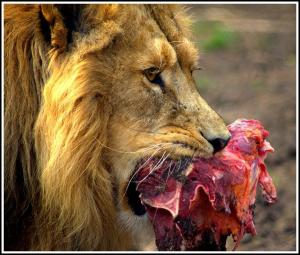By Steve Long ~ author/publisher of Horseback Magazine
“Studies performed in laboratory animals have shown that phenylbutazone has carcinogenic properties. “
 HOUSTON, (Horseback) – When equine slaughterhouses open their doors in New Mexico, Iowa, and Missouri this month, their proprietors are likely to face a determined effort by animal advocates to educate a prime market for horsemeat – the nation’s zoos. Horseback Magazine has learned that a determined national effort to inform them that phenylbutazone, or bute, is prohibited by the FDA for human consumption, and American horsemeat faces a ban by European Union countries because of toxic chemicals..
HOUSTON, (Horseback) – When equine slaughterhouses open their doors in New Mexico, Iowa, and Missouri this month, their proprietors are likely to face a determined effort by animal advocates to educate a prime market for horsemeat – the nation’s zoos. Horseback Magazine has learned that a determined national effort to inform them that phenylbutazone, or bute, is prohibited by the FDA for human consumption, and American horsemeat faces a ban by European Union countries because of toxic chemicals..
The federal USDA has approved funding for the use of federal meat inspectors in the facilities. All say they will open in July.
On advocates target list – 222 zoos from coast to coast.
Bute is administered to horses and other animals as a pain killer.
In their pitch to the zoos, advocates will cite an FDA prohibition against use of the drug in food animals, as well as a ban by the European Union on the import of horsemeat tainted with phynalbutazone and about 25 other chemicals commonly administered to U.S. horses. In Europe, horses destined for food must be monitored for life and certified that their meat is uncontaminated via a diary system.
Scientists say feeding bute tainted meat to zoo animals is dangerous to the expensive exotic species.
“Studies performed in laboratory animals have shown that phenylbutazone has carcinogenic properties. Based upon these studies, phenylbutazone is just as dangerous to animals as it is to humans,” said Ann Marini, MD, PhD.
Marini is co-author of the leading study on the subject of the use of Bute in horses, “Association of phenylbutazone usage with horses bought for slaughter: A public health risk,” along with Nicholas Dodman and Nicolas Blondeau. The Work was published in the scientific journal, Food and Chemical Toxicology.
The drug is almost universally used on American horses and it is believed that only an insignificant number of animals have not received it. Of most concern is the fact that the drug does not leave the animal’s carcass but remains in the body for life. The only valid test for its presence is to test the kidneys where it is stored through a post mortem examination.
“In 2007, the USDA Food Safety and Inspection Service stated that “phenylbutazone is considered to be one of the most toxic non-steroidal anti-inflammatory drugs. It is not approved for use in food animals and there are no regulatory limits, such as acceptable daily intake or safe concentration for meat, established by the Food and Drug Administration. Therefore, the presence of any amount of phenylbutazone in food animal tissue will be considered a violation and likely to be unsafe for human consumption,” said an online statement from Thermo Fisher Scientific, a firm that markets a quick test to determine if bute is present in horsemeat.
“Feeding horse meat to captive carnivores has many hazards beyond the revulsion of zoo attendees. Not only does it contain a wide range of equine medications, but it can also transmit trichinosis and even the West Nile Virus,” said John Holland, the nation’s foremost advocate of preventing the resumption of equine slaughter. He is founder and President of the Chicago basedEquine Welfare Alliance.









No comments:
Post a Comment